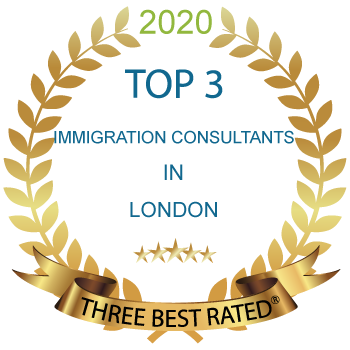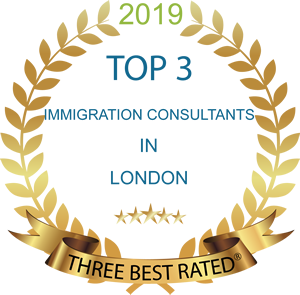Global Business Mobility (GBM) Visas
The Global Business Mobility visa is a combined new category of sponsored routes for overseas businesses to send workers to the UK for a temporary work assignment with a linked UK business that cannot be done by a settled worker. These routes was opened to applicants from 11 April 2022.
There are four separate Global Business Mobility routes that correspond to different temporary work assignment types, including:
- Senior or Specialist Worker
- Graduate Trainee
- Service Supplier
- Secondment Worker
Senior or Specialist Worker
The Senior or Specialist Worker route designed to sponsor overseas workers to undertake temporary work assignments for you in the UK, where the worker is a senior manager or specialist employee and is being assigned to you by a linked overseas business.
The Senior or Specialist Worker route has replaced the Intra-Company Transfer route from 11 April 2022. To be eligible for this specific route, an applicant must:
- be working for the sponsor group and have worked for that group outside the UK for a cumulative period of at least 12 months, unless they are high earner with a gross salary of £73,900 per year or more
- The job will need to be an eligible job at or above a minimum skill level
- and the applicant will need to be paid a salary which equals or exceeds £42,400 per year or the ‘going rate’ for that job, whichever is higher.
The maximum time allowed in the Global Business Mobility route will be 5 years in any 6 year period if paid less than £73,900 per year; or 9 years in any 10 year period if paid £73,900 or more per year.
Graduate Trainee
The Graduate Trainee route has replaced the Intra-Company Graduate Trainee route from 11 April 2022.
The Graduate Trainee route allows to sponsor overseas workers to undertake temporary work assignments with in the UK, where the worker is on a structured graduate training programme leading to a senior management or specialist position with a linked overseas business and is required to do a work placement in the UK as part of that programme.
Applicants must have been working for the overseas company for at least 3 months prior to date of application. The Certificate of Sponsorship must confirm the job they will be sponsored for and the role must be eligible under Appendix Skilled Occupation. The individual must be paid a salary of at least £23,100 or at least 70% of the going-rate for the occupation, which is higher.
Graduate Trainees can come to the UK for up to one year at a time, up to the maximum cumulative period permitted on the GBM routes.
Secondment Worker
The Secondment Worker route is a new route for overseas workers who are undertaking temporary work assignments in the UK, where the worker is being seconded to the UK as part of a high value contract or investment by their employer overseas.
Applicant must demonstrate they have been working for the overseas employer for a cumulative period of at least 12 months. The contract between the UK Sponsor and the overseas company must be approved by the Home Office before sponsorship under this route can take place.
A Secondment Worker can come to the UK for up to one year initially, with the option to extend their stay by up to a further year. Two years is the maximum continuous period a person can stay in the UK on this route. Secondment Workers are also subject to the maximum cumulative period for the GBM routes.
FAQ
- Can I apply for settlement?v
-
Applicants under the Global Business Mobility visa routes are not eligible to apply for settlement (indefinite leave to remain) in the UK. They can, however, switch to an eligible visa category to be eligible for settlement.
-
-
How long can I stay in the UK?v
-
The maximum total stay allowed for Global Business Mobility visa visa is:
- 5 years in any 6 year period if an applicant is paid less than £73,900 a year;
- 9 years in any 10 year period if an applicant is paid £73,900 a year or more
The maximum total stay allowed for an applicant under Graduate Trainee visa is 5 years in any 6 year period. If they have already been in the UK with an Intra-company visa before your application, that time will be included in their total stay.
-
- Can I switch to a Skilled Worker visa within the UK?v
-
The Global Business Mobility visa Migrants are able to switch into the Skilled Worker route.
-
- Rights of Dependantsv
Dependants (including children under 18 years of age or husband, wife, civil partner, unmarried partner or same-sex partner) will be eligible to live and stay in the UK with the main applicant. They can live and work in the UK without any restrictions. They will be granted leave in line with the expiry date of the main applicant's leave.
-
Conditions of Stayv
-
Applicants will have the following conditions attached to their leave:
- No recourse to public funds;
- Registration with the police, if applicable;
- Not be allowed to start up or run a business;
-
Applicant cannot take employment, except:
- working for the sponsor in the job recorded on your Certificate of Sponsorship; and
- for an extra job in the same sector and at the same level or in a job on the shortage occupation list, provided that you do not work more than 20 hours per week in that job; and
- voluntary work.
-
-
Biometric Requirementv
-
Non-EEA nationals applying under Global Business Mobility visa have to apply for a biometric residence permit.
The biometric residence permit is a residence permit which holds a migrant's biographic details (name, date and place of birth) and biometric information (facial image and fingerprints), and shows their immigration status and entitlements while they remain in the UK. This also means that a UK visa will no longer be stamped in the applicant's passport and all applicants will be issued one of the new Biometric visa cards instead. These cards look very similar to a (pink) UK driving license, except they have a microchip in the back. .
Once the application for Global Business Mobility visa is submitted online, applicants are required to attend their biometric appointment at one of the Visa Application Centers to provide their fingerprints, photo and signature. .
Successful offshore applicants will receive a 30 day' vignette sticker' in their passport instead of a vignette with the full grant of leave. This 30-day visa will be the date they indicated as their intended travel date in their visa application. Applicants under Global Business Mobility visa will be required to collect their BRP from the Post Office branch detailed in their decision letter within ten days of arrival in the UK. The Post Office branch is linked to the postcode that they submitted in their visa application. The BRP card can then be used as proof of right to work, study and access public services in the UK. .
-
-
Digital Statusv
-
EEA nationals making an application under the Global Business Mobility visa using the UK Immigration: ID Check app will be given digital status if their application is successful. .
EEA applicants as a part of the Global Business Mobility visa application process can use the UK Immigration: ID Check app to complete the identity stage of their visa application. Using the app, they should confirm their identity, verify their documents and take a picture.
-
- Immigration Health Surchargev
-
The Immigration Health Surcharge (IHS) was introduced by the Home Office on 6 April 2015. People coming to the UK for more than six months have to pay this health surcharge as a part of their immigration application towards the National Health Service (healthcare in the UK). Offshore applicants will have to pay the health surcharge if they are applying for a visa for a period of longer than six months, and onshore applicant will have to pay the health charge for any length of visa. .
Applicants will have to pay £470 per year as a student, or as a Youth Mobility Scheme or applicant who is under 18 years. For all other visa and immigration applications, they have to pay 624 per year. Dependants will usually need to pay the same amount as the main applicant. The exact amount they have to pay depends on how much leave they are granted. They can calculate how much they will have to pay before you apply. If the period of grant applied for is less than 6 months, then half of the yearly amount to be paid and if the period of grant applied for is more than 6 months, then whole year amount is to be paid. .
Visa application will not be granted if applicants do not pay the healthcare surcharge or application will be delayed if the right amount is not paid.
Following persons are exempted from paying the IHS:
- diplomats or a members of a visiting armed forces and not subject to immigration control
- dependants of a member of the UK's armed forces
- dependants of a member of another country's armed forces who is exempt from immigration control
- applicants for a visa for the Isle of Man or Channel Islands
- British Overseas Territory citizens resident in the Falkland Islands
- asylum seekers and applicants for humanitarian protection, and their dependants
- domestic workers who have been identified as victims of slavery or human trafficking
- those applying for discretionary leave to remain in the UK as someone who has been identified as a victim of slavery or human trafficking, and their dependants
- those applying for permission to remain as the victim of domestic abuse, and their dependants
- those claiming that being made to leave the UK would be against their rights under Article 3 of the European Convention on Human Rights, and their dependants
- Applicants and their dependants applying for Health and Care Worker visa
-
- Processing Timesv










